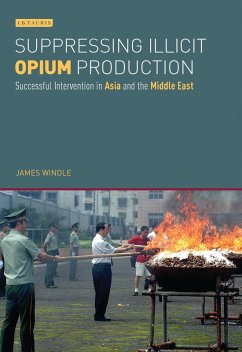Conventional analysis of the illicit opium market suggests that source country interventions have at best achieved minimal results. Yet there are countries that have eliminated, or significantly reduced, the illicit production of opium from their territory. Drawing on a wide range of academic, official and non-governmental sources, including previously unidentified records, James Windle provides detailed narratives of countries that have achieved national success, including China, Iran, Turkey, the People s Republic of China, the Islamic Republic of Iran, Thailand, Pakistan, Vietnam and Laos, and identifies key factors necessary for successful intervention. Suppressing Illicit Opium Production makes a valuable contribution to our scarce knowledge of source country drug policy and draws out important lessons to be learned for improving the effectiveness of future interventions. It will be essential reference for all practitioners, policy makers and academics concerned with a subject of significant contemporary relevance."


